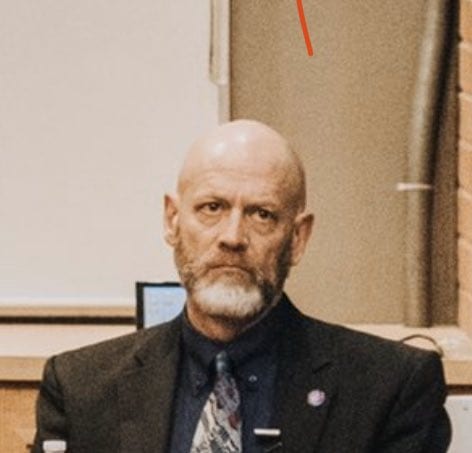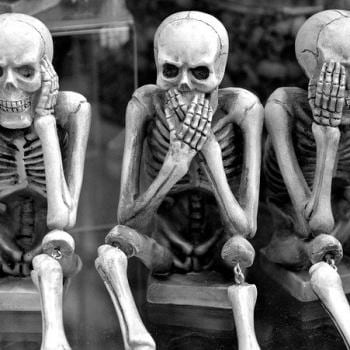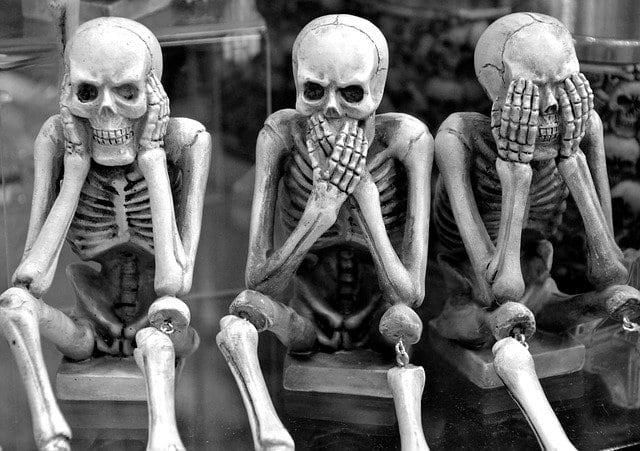Discussions About Christian Sexual Morality and Marriage with Atheists

This topic always generates all sorts of controversy; never fails. This took place in a thread at the notorious Debunking Christianity site. I was foolish enough to think I could get somewhere with sociological data, in dealing with sex and societal trends regarding same. It seems not. But you never know. Some seed of doubt may have been planted one or two readers. If so, my frustration and weariness with the continual misrepresentation of traditional Christian views on sexuality will have been worth it .
The atheists’ words will be in the following colors:
John W. Loftus: orange
Martin Wagner: blue
Daniel: brown
trinity: green
Bruce: purple
*****
Is that so? Wow, I never knew that. I guess I didn’t notice it (as a Christian, very happily married for 22 years now; silly me). Many studies have shown that strongly Christian couples are among the most sexually happy marriages: a lot more than those of the swingers and advocates of free sex and so forth. It’s a known fact that promiscuity before marriage tends to adversely affect monogamous relationships, because one is always fantasizing about the others and comparing them, etc.
God designed sex for one couple, married for life. That is what works best, and there is much secular sociological data to support this.
Likewise, all the things Christians believe in (stable marriages, two-parent families [i.e., male and female!], no divorce, mother staying at home if at all possible, etc.) are now known to be far healthier for children (studies on the adverse effect of day care are now coming out).
I just posted an article about how much of hip hop music contains themes of broken homes. These musicians are expressing the agony of the fruits of the sexual revolution.
* * *
Yeah, I know. I’ve written about that myself: even in my last published book.
But you have to control for seriousness of religious fervor. When you do that, and you look at couples who, e.g., pray together, do devotions or Bible studies together; go to church every week, etc. the divorce rates go down to 5% or 10%. That’s a very significant statistic indeed.
Without trying to refute your correlation, just pointing out something important: people who do any activity very regularly show the hallmark(s) of devotion and discipline. It could be thought, and I am not aware if such studies are done, that the same correlation may also hold between X and low divorce rate, where X = exercising together regularly, eating at least 4x a week together, setting aside “date nights”, being Buddhist and doing yoga together, being Hindu and praying to Shiva, being atheists and attending a UU church…etc.
I think this is an important consideration in evaluating the likelihood of divorce by criteria that demonstrate the ability of the couple to maintain discipline in their routine and a degree of devotion to each other.
Just a thought.
I agree that many factors could contribute to happy marriages. Common interests are obviously one (whatever they are). When I said regular prayer and Bible study and so forth, I meant that more in the sense of “indication of strong religious commitment” rather than “shared activity” (though it is that too).
As a general observation I would point out that Christian moral teaching fits in perfectly with how we feel ourselves to be; our needs and wants.
Most of us feel that one partner is best for us. That’s Christian teaching.
No one thinks divorce is a good thing. That’s Christian teaching.
Adultery seriously injures the wronged party. Christian teaching says to not do it, as one of the most serious sins.
Try to talk to your wife or husband about numerous sexual conquests or escapades before you met; see how well that goes over. Christian teaching opposes fornication and restricts sex to marriage.
You men: go suggest to your wife that swinging or wife-swapping might be fun. See how well that goes over. Women want you to be devoted to them, and them only, and for this to last forever. Christianity opposes that; but “open marriage” says otherwise. who says that marriage is to death? You know who. Everyone wants that, ideally, yet when we come along and try to make it binding, so it can have every chance of succeeding, everyone thinks it’s legalism and unreality. No; it is exactly reality, to make binding what everyone claims they want and want to try to achieve.
I was watching a special on the Beatles’ wives, and it said that George had a crush on Ringo’s wife Maureen and suggested one night that they swap wives. Everyone was shocked, and this documentary said that contributed to the downfall of Ringo’s marriage (Maureen died of leukemia at age 47, by the way).
Everyone knows that George’s wife Patti was the cutest by far of all the Beatles wives. :-) :-)
And likewise, John told his wife Cynthia in 1968 that he had slept with about 300 women. That went over great. Why is that? why is it that premarital or extramarital sex is glorified by our culture, yet if someone tries to DO it they often get in big trouble with their spouse? Christianity is the belief-system that says that we should stick to one person (of the opposite sex: a whole other discussion). It’s almost self-evident that this works out best. Everyone knows it.
People may choose divorce if their marriage is a failure, but no one wants this, and no one sets out in a serious relationship with separation as a serious option. Almost all of us have that yearning to find one person and make it work forever (as a million love songs are about).
So Christianity simply says what we already know (part of a larger argument I’ve been having with DagoodS: that Christian morals build upon natural law and morals, and what every human being knows within himself).
I could go on and on with this, but you catch my drift . . .
* * *
And certainly if you controlled for premarital sex, that would be highly significant, too (there is no doubt in my mind). In other words, for those who truly believe and consistently live out Christian morality (for the most part: as we all fail now and then), there will be an impact on marriage as in all other parts of life.
Those who don’t do that shouldn’t surprise us if they fall prey to all the prevailing societal trends. Christians are famous for that. But it makes no sense to critique Christianity for failures that occur precisely because folks aren’t following the very Christian teaching that would make a difference if it was faithfully followed.
Baby – bathwater . . . .
* * *
What exactly is this “Christian morality” of which you speak,
Traditional Christian values: that the secular world is so furiously against these days.
and is there any reason to suspect that it’s any more conducive to marital bliss than a non-religious ethical system based on reason and humanism?
I don’t know. I was simply responding to John’s claim that Christian morality made scarcely any difference and that sex in Christian marriages fizzles after seven years (dunno where he got that). I was repeating the studies I have seen many times through the years that this isn’t the case; quite the contrary.
For example, there is related research that shows how cohabitation before marriage is statistically more likely to coincide with later divorces than ton lower them (as the fallacious “try before you buy” sexual outlook would have us believe). I can’t help it that the studies back up traditional Christian morality. They show what they show, whatever any of us may think about the results.
* * *
In my baptist upbringing we was always told that sex is naughty, dirty, etc. Whenever people were kissing on TV, we’d have to cover our eyes. After being told that your whole life, you believe it. Then all of a sudden on your wedding night, something formerly so bad becomes something you are supposed to share with your life partner. That’s really messed up.
Yes it is. It’s asinine, stupid, and idiotic in the extreme. I was never taught these ridiculous things in the circles I moved in (which incorporate many parts of Christianity).
It’s not Christian or biblical teaching, which holds that sex is good and great, and was created by God for procreation and pleasure, but under certain limited conditions, due to the human propensity for selfishness and lust and destructive tendencies.
To merely limit something is not to equate it with wickedness. No one thinks hot dogs are wicked because everyone should limit how many they eat at a time. Conversely, no one argues that kissing is a good thing and so consequently sets out to kiss every female in a stadium of 40,000.
There are limits to every good thing. Sex is no exception. Human experience has shown that faithful monogamy works best. If you doubt this, then go cheat on your husband or wife and see how they feel about it. It’s instinctive; innate. We all feel this. Yet Christians get a bum rap because we teach that sensible limits to sexual expression are binding, and their violation sin.
But in any event, the real Christian teaching on sex is not what these clowns you grew up with teach. Every belief system (including atheism) has its fringe elements and corrupters, too.
* * *
Of course there are all sorts of reason for happy (and bad) marriages. I’ve always been an advocate of multiple causation for most things. I was responding to John’s running-down of the Christian marriage ethic, as if it makes no difference. I didn’t claim that no one besides Christians could possibly have a happy marriage.
* * *
Sacred implies that it is some sort of gift from God, overriding the biological basis for our sex lives. It is also used to coerce women (and men as well,
Yeah, right. Okay, try this with your wife (if you’re married): tell her that you think sex has no higher ontological meaning or mystical essence of uniting people and making them feel an indescribable oneness (let alone sacredness). Rather, it is simply a biological need and she serves as a convenient biological conduit to fulfill your need to have nerve endings feel wonderful and to give you physical pleasure.
That’s all it means. It has no meaning beyond that. See how well that goes over.
Now I happen to think that if these feelings are so strong and well-nigh universal, that there truly is some basis for them besides mere coincidence or supposed social conditioning.
We’ve had now 40 years of the sexual revolution and 200-300 years of increasing secularization of western civilization, but I see no sign of human nature changing, or acceptance of promiscuity and so forth. Women still feel exactly the same as they always have. Men, too, are just as hurt by adultery as they always were.
Promiscuity and sexual conquest may be glorified in male locker rooms or basketball courts or when women are acting ridiculous and going to see the Foxy Frenchmen or a Brad Pitt movie or something, but at ground level it is still as ugly and as dreaded as ever.
Christianity is trying to spare people tremendous pain by enforcing the rules of common sense morality. You would think that people could figure out just from reason and experience that there is something to this: that Christians and other “traditional” religions were onto something profound and right, and have some wisdom to give to humanity. But the sexual drive and secular societal conditioning is far too strong for many people to get over. So they go and make the same mistakes. And they mock Christian values because, in my opinion, they know down deep that they are right, but find them difficult to live by.
That’s why G. K. Chesterton famously said: “Christianity has not been tried and found wanting; it has been found difficult and left untried.”
* * *
But the act of having sex outside of marriage is not in itself immoral, does not make one impure, does not damage any future marriage(s) . . .
Ah, but it does do damage; this is what you don’t understand. Setting traditional Christian sexual morality aside for a moment (it’s not required for my argument here to succeed), there are known consequences to lots of premarital sex and cohabitation. It tends to lead to (strictly based on scientifically-controlled polling) less stable marriages, more sexual dissatisfaction and a higher likelihood of divorce.
This is almost my entire present point. The mounting sociological, psychological, societal, and experiential evidence is great testimony that traditional sexual morality works best: even for those aspects that all you sexual libertines [by this I did not mean to imply all atheists: only those who recognized themselves in the description]
Disagree with him on any part of his recipe for marital perfection, and you’re a “sexual libertine”.
Is there any reason we shouldn’t categorically dismiss you as an idiot from here on out?
Christian morality: lived out consistently, with understanding and dependence on God for the grace to carry it out, works. It works because it is true (not the opposite, or mere pragmatism). If you want a happy marriage, be very selective, keep your pants on till marriage, find a mate who feels the same way, be sure you are temperamentally compatible (and as many other ways as possible), and that is the recipe for success.
In other words, “Be perfect! Like Dave!”
Okay Dave, find me one of these studies you’re not citing which shows that no marriage in history in which both partners remained virginal until their wedding day has ever ended in divorce, and that no marriage in history in which at least one partner had at least one premarital sexual experience has ever not ended in divorce, and maybe we’ll take your bizarre notions about human relationships seriously. Until then, you just sound like a weirdo with some major sexual hangups to us. But then, we’re all libertines, so that figures, eh?
Of course it has to be consistently lived. One could do all that and later, someone falls into lust or irresponsibility or substance abuse, or someone has a serious mental breakdown, and then factors other than Christian influence are introduced and everything can change. But the traditional morality by itself can only be a positive force for lasting, fulfilling relationships.
* * *
So explain why Christians get divorced more. You’re avoiding this like a kid who doesn’t want to brush his teeth.
Hardly; I already answered it; one has to control for the variable of how vigorous and serious the commitment to Christianity is: then the divorce rates go WAY down.
These ideas are hardly unique to Christianity, Dave.
Didn’t say they were, so this is neither here nor there.
That had nothing to do with my line there, which was rhetorical and challenging to non-Christian sexual mores and ethics.
I was taking the question a step further: not dwelling on the obvious, as you want to do, making out that I am some backwoods naive simpleton. I was at least as sexually liberal in my past as many of you are. I’ve been around the block. I’ve lived and believed all that nonsense.
So what I’m doing is asking, “why is this a problem if in fact, promiscuity and lots of free sex is such a good, wonderful thing? Why is it that it can potentially become a problem in later marriages, and it is a no-no subject if it is so wonderful? Why is it that we all have that drive to be the lone loved one of our mates, yet at the same time liberal sexual morality does everything it can to undermine that goal, by promoting free, irresponsible sexuality?”
and like many religionists you have a skewed, black-or-white version of the world in which everyone exists at the end of one of two extremes. Here, you’re either a blissfully happy monogamously married sexual saint, or a wild and uncontrollable libertine into wife-swapping and sex with anything that moves. You don’t seem to have much experience with actual, you know, people.
Good grief. It just never ends, does it? It doesn’t matter what we Christians argue; how nuanced we present things; how many times we make clear that we don’t think all atheists are wicked and evil; you’ll still accuse of the same idiotic attitude.
Some Christians hold to this position, but they are in the minority, and I am not among them, as I repeat till I’m blue in the face around here. But you seem new, so it’s the same old nonsense: you meet a Christian and assume he is exactly like the fundamentalist wacko stereotype that does exist, but which is not representative at all of Christianity as a whole. I ain’t a fundamentalist; never have been. I was raised in a liberal Methodist home, became a secularist for ten years, then an evangelical Protestant, and then a Catholic. At no time was I anything like a “fundamentalist.”
You clearly don’t even understand my argument, because (typically of a certain kind of atheist) you casually assume that I am an idiot who lives in a naive Christian bubble. If you could get past all your stereotypes, I think you’d discover that we actually have a lot more in common than you imagine. I know it’s tough but I believe you can do it. You have it in you. You just need a little encouragement to do better.
And yet people who adhere to this belief system have less success with their marriages than people who don’t. Ahh, the cognitive dissonance. If Dave won’t address it, maybe it will go away.
I already did. In charity, I will assume that you simply didn’t read my post where I stated that.
Just keep telling stories about crazy promiscuous rock stars as if that proves a point. Also, keep trotting out false choices and either-or fallacies like this one: . . . Again, you seem to have little experience with how men and women actually interact sexually, outside of your own marriage that is.
That’s untrue, as already explained. But even if I lived in Antarctica and never saw a woman in my life, that wouldn’t change the fact of scientific polling data, which is what it is regardless of the past sexual history and understanding or lack thereof, of the person who presents it.
The more you keep cheerleading for the alleged moral superiority of your belief system the more it sounds like you’re doing so in an effort to hide from uncomfortable facts. I believe it’s called “whistling past the graveyard”, or in this case, “bedroom”.
Right. Why is it that I wrote in my most recent published book, The Catholic Verses (look it up on Amazon): “[D]ivorce rates among Evangelical protestants are virtually as high as that of the general public” (p. 205)?
The only ignoring going on here is your butchery or confused noncomprehension of my argument.
Do you agree with the statement that all instances of divorce and remarriage constitute adultery?
Of course not. That’s why we Catholics have annulments to look into what the situation was, that may have been a serious mitigating circumstances.
Do you believe wives should always be submissive and accept an inferior role to that of their husbands?
The same Paul who taught that also taught (in the verse just before): “Be subject to one another out of reverence for Christ” (Eph 5:21-22), and three verses later that the husband should love his wife the way that “Christ loved the church and gave himself up for her.” Being willing to be crucified for someone else doesn’t exactly strike me as a totally dominant superior-slave relationship. It is not at all, rightly-understood. I’ve never forced my wife to do anything. We decide things jointly.
And do you agree with Paul that ultimately, sex is just a really really bad thing to do,
I don’t agree, because Paul never taught this. It’s a gross distortion; typical of atheist “exegesis.”
but people should marry anyway, only to avoid going to hell for fornication?
Lust is not the same thing as sex. Premarital sex is different from married sex. The same act can be good or bad depending on circumstances. You think not? Okay, then why is rape wrong? Why would incest be wrong, or sex with an eight-year-old. That’s all the same act, but it is wrong in one instance and right in others. We simply say sex outside of marriage is another time that sex is immoral.
I don’t see much “common sense” in that “morality”.
It would help considerably if you actually understood it in the first place, rather than lash out at it before you even know what the opposing view holds. It’s easy for me, on the other hand, to critique the usual secular view of sex, because I used to hold it myself. Nothing like firsthand experience to make one understand something.
* * *
Guarting-Gibbs, P.A., “The Institutionalization of Pre-Marital Cohabitation: Estimates from marriage license applications, 1970 and 1980,” Journal of Marriage and the Family, 48 (1986): 2, pp. 423-433.
Premarital cohabitation tends to lead to reduced sexual exclusivity in marriage. See:
Forste, R., and Tanfer, K., “Sexual Exclusivity among Dating, Cohabiting and Married Women,” Journal of Marriage and the Family, 58 (1996): 1, pp. 33-47.
*
Contributors to JMF come from a diversity of fields including anthropology, demography, economics, history, psychology, and sociology, as well as interdisciplinary fields such as human development and family sciences. JMFpublishes original theory and research using the variety of methods reflective of the full range of social sciences, including quantitative, qualitative, and multimethod designs. Integrative reviews as well as reports on methodological and statistical advances are also welcome.
* * *
In a Primetime Live Poll: American Sex Survey (10-21-04), we learn:
. . . most weekly churchgoers say premarital sex and homosexuality are not acceptable; most infrequent attenders hold the opposite view. Ten percent of weekly churchgoers say sex without an emotional attachment is acceptable; it’s 36 percent among the unchurched.
. . . Weekly churchgoers are as satisfied as the unchurched with their sex lives, and 10 points more likely to be very satisfied with their marriage or relationship.
. . . Northeasterners and Westerners are more apt to call themselves adventurous sexually and to say homosexuality is OK. And when it comes to being very satisfied with their sex lives, only in the Midwest does a majority give the thumbs up.
Political ideology follows a similar pattern as religious observance — like weekly churchgoers, conservatives are more conservative sexually, liberals less so. That makes sense, not least because conservatives are more frequent churchgoers.
Conservatives are far less likely to accept premarital sex or homosexuality, and half as likely as liberals to say sex without an emotional attachment is OK. They’re less apt to have had rebound sex, to call themselves sexually adventurous, to watch sexually explicit movies, to discuss their fantasies, to have had sex outdoors, to have had sex on a first date or to have visited a porn site. At the same time, conservatives are slightly more likely than others to be very satisfied with their relationship and sex lives. Liberals, for their part, are more apt to be sexually adventurous.
. . . Republicans are around 10 points more likely than Democrats to think about sex daily, to be very satisfied with their marriages and sex lives and to wear something sexy to spice things up;
. . . This ABC News “Primetime Live” survey was conducted by telephone, by female interviewers only, Aug. 2-9, 2004, among a random national sample of 1,501 adults. The results have a 2.5-point error margin for all respondents; as in any poll, sampling error is higher for subgroups. Sampling, data collection and tabulation by TNS of Horsham, Pa.
While rising numbers of teens are saying no to sex, the most telling evidence against “liberation” comes from the kids who said yes. A survey published in the American Journal of Preventive Medicine in 1991 asked sexually experienced inner-city junior and senior high students what they thought was the ideal age to begin having sex: 83 percent suggested ages older than they had been. Twenty-five percent of these sexually experienced kids also said that they believe sex before marriage is wrong. (This point of view has continued to grow in popularity. The UCLA Higher Education Research Institute surveys 250,000 new college freshmen every year. In 1987, 52 percent of the students said that casual sex was acceptable; only 42 percent of the 1996 class agrees.)
In the 1994 Roper survey cited above, 62 percent of sexually experienced girls, and 54 percent of all experienced high schoolers, said they “should have waited.” And, most poignant, a study published in a 1990 issue of Family Planning Perspectives described a questionnaire distributed to one thousand sexually active girls, asking them to check off which item they wanted more information about. Eighty-four percent checked “how to say no without hurting the other person’s feelings.”
* * *
Mahoney, A., Pargament, K.I., Jewell, T., Swank, A.B., Scott, E., Emery, E.,
and Rye, M. (1999). Marriage and the spiritual realm: The role of proximal
and distal religious constructs in marital functioning. Journal of Family
Psychology, 13 (3), 321-338.
Abstract: Ninety-seven couples completed questionnaires about their
involvement in joint religious activities and perceptions regarding the
sanctification of marriage, including perceived sacred qualities of marriage
and beliefs about the manifestation of God in marriage. In contrast to
individual religiousness and religious homogamy (distal religious
constructs), these proximal religious variables directly reflect an
integration of religion and marriage, and were consistently associated with
greater global marital adjustment, more perceived benefits from marriage,
decreased marital conflict, more verbal collaboration, and less use of
verbal aggression and stalemate to discuss disagreements for both wives and
husbands. The proximal measures also added substantial unique variance (R2
.08-.49) to specific aspects of marital functioning after controlling
demographic factors and distal religious variables in hierarchical regression analyses.
* * *
Clarification: Barna Research Group on what self-described “born again” Christians believe:
I found a Barna page [link defunct]with the following comment:
“More than four out of five Americans claim to be Christian and half as many can be classified as born again Christians. Nine out of ten adults own a Bible. Most adults read the Bible during the year and a huge majority claims they know all of the basic teachings of the Bible. How, then, can most people say Satan does not exist, that the Holy Spirit is merely a symbol, that eternal peace with God can be earned through good works, and that truth can only be understood through the lens of reason and experience? How can a plurality of our citizens contend that Jesus committed sins and that the Bible, Koran and Book of Mormon all teach the same truths?”
And on another Barna web page [link defunct]:
“Born again Christians” were defined in these surveys as people who said they have made a personal commitment to Jesus Christ that is still important in their life today and who also indicated they believe that when they die they will go to Heaven because they had confessed their sins and had accepted Jesus Christ as their savior. Respondents were not asked to describe themselves as “born again” or if they considered themselves to be “born again.”
“Evangelicals” are a subset of born again Christians in Barna surveys. In addition to meeting the born again criteria, evangelicals also meet seven other conditions. Those include saying their faith is very important in their life today; believing they have a personal responsibility to share their religious beliefs about Christ with non-Christians; believing that Satan exists; believing that eternal salvation is possible only through grace, not works; believing that Jesus Christ lived a sinless life on earth; and describing God as the all-knowing, all-powerful, perfect deity who created the universe and still rules it today. Being classified as an evangelical has no relationship to church attendance or the denominational affiliation of the church they attend. Respondents were not asked to describe themselves as “evangelical.”
And yet another [link defunct]:
“A minority of born again adults (44%) and an even smaller proportion of born again teenagers (9%) are certain of the existence of absolute moral truth.
“. . . Only 1% of all born again adults firmly concurred with each of 13 basic belief statements from the Bible.
” . . . Born again Christians spend seven times as much time on entertainment as they do on spiritual activities.”
The labels may be, as you say, “ethnic”, or in the case of the diverse ethnic groups comprising Protestantism, the labels may represent a “generational” identity. My personal crusade is to chase down (or do it myself) research which has gone beyond categorization by these generic labels which seem to be losing their former meaning, to tease out specific beliefs and “spiritual disciplines” related to mature, committed faith, which may prove to be better predictors (as far as the religious variable is concerned) of enduring marriage and/or divorce. ]
Divorce, American-Style, Scientific American, March, 1999:
The reasons for the marked regional disparities are not definitively known, but they probably reflect several factors, including church membership, which may reinforce marriage ties. Not surprisingly, therefore, Florida and most of the western states, where church membership is low, have a higher proportion of divorced people. Migration may contribute to the high proportion of divorced people in the West and Florida, which have a larger proportion of peripatetic individuals than other areas have. The broad swath of counties stretching from North Dakota and Wisconsin down to the Rio Grande is an area with few divorced people, which might be expected in view of high church membership and the relatively few migrants to this area. The low prevalence of divorce in Virginia, North Carolina and South Carolina may stem in part from fairly high church attendance.
Non-US Divorce Rates: According to the report “Profiling Canada’s Families III”, by The Vanier Institute of the Family, unmarried cohabiting couples are four times more likely to break up than married couples. “CANADIAN TREND INCLUDES FEWER LEGAL MARRIAGES” CTV.ca News Staff, NOV 29, 2004. Cited in a posting on the Smart Marriages Listserv Nov. 29, 2004 [link defunct].
Cohabitation Data: There is a higher risk, 40 to 85%, of divorce between couples cohabiting before marriage than couples waiting until after marriage to share a home together. (Bumpass and Sweet 1995; Hall and Zhao 1995; Bracher, Stantow, Morgan and Russell 1993; DeMaris and Rao 1992 and Glen 1990) Cited in a posting on the Smart Marriages Listserv, Sep 28, 2004 [link defunct].
* * *
“The Joy of Christian Sex,” Sheila Wray Gregoire [link defunct]:
A large-scale study of 1,100 American adults by the Family Research Council found that 72% of married people who attended church weekly reported being “very satisfied” with their sex lives, thirty points higher than their unmarried counterparts, and thirteen points higher than other marrieds. In these days when we are being bombarded with attacks for our stance on sexuality, perhaps it’s time to remind ourselves why sex, in the Christian context, can be so wonderful.
Christian Sex is Holistic
One of the best things about the Christian view of sex is that it recognizes that we’re more than lizards. In popular culture, on the other hand, physical pleasure trumps all, reducing sex to something merely instinctual. By doing this, people lose out on the more profound possibilities sex offers to express love, commitment, and even a mystical union. The 1993 Janus Survey on Sexuality found that a key ingredient in religious people’s more satisfying sex lives was that they did associate these spiritual and emotional components with sex far more than other respondents did. Indeed, there’s a reason God calls us his bride – a very sexual image – and and understanding that reason helps us also understand those survey results.
* * *
Sex: What Do Women (and men) Really Want?, Theresa Notare:
Science also sheds light on our emotional well being. Sociological research shows that since the 1960s there has been a steady increase in non-marital sexual activity in Western developed countries. In 1998, the National Opinion Research Center of the University of Chicago reported an average of 7.8 sexual partners after the age of 18 – an increase over the 1990 level of 7.0 partners – but significantly lower than the 9.5 partners mean reported in 1996.8 In May 2003, the Kaiser Family Foundation reported that one in five teens has sex before age 15, 37% between the ages of 15 and 17, and 80% between the ages of 18 and 24.9
Today it is estimated that half of newly married couples cohabited prior to marriage. In the 2000 Census, there were 5.5 million cohabiting unmarried couples (up from 3.2 million in 1990).10
Given these facts, are people happier? Does this behavior aid growth in emotional or sexual maturity? Does it make people more generous or better able to persevere in difficult situations? What impact does this behavior have on marriage and family life? Are those who have multiple sexual partners better able to form lasting relationships? Better prepared to put the needs of loved ones above their own desires? Research provides answers to many of these questions.11
Over 25 percent of sexually active teenage girls 14-17 report being depressed all, most or “a lot” of the time, a rate of depression more than three times that of teenage girls who are not sexually active (7.7 percent).12 Sexually active boys 14-17 report being depressed all, most or a lot of the time at a rate 2 times greater than boys who are not sexually active (8.3 percent vs. 3.4 percent). “A full 14.3 percent of girls who are sexually active report having attempted suicide [in the past 12 months]. By contrast, only 5.1 percent of sexually inactive girls have attempted suicide.”13 The contrast between sexually active boys (6.0 percent of whom attempted suicide in the past 12 months) and boys who were not sexually active (0.7 percent) is even greater – almost 8 times higher. Do teens regret having become sexually active? 72% of sexually active girls and 55% of sexually active boys said they wished they had waited longer before starting to be sexually active.14
And a 2002 study on the attitude of young men toward marriage is telling. Included in the top ten reported reasons why men won’t commit to marriage are: “they can get sex without marriage,” “they fear that marriage will require too many changes and compromises,” “they want a house before they get a wife,” and “they want to enjoy single life as long as they can.”15 Such reasons lend support to the belief that non-marital sexual activity fosters immaturity and materialism.
Current sociological research overwhelmingly demonstrates “strong correlations between the practices of premarital sex and/or cohabitation and divorce.”16 Some of the more prominent studies:
- As early as 1974 the correlation between premarital sex and divorce was known. Robert Athanasiou and Richard Sarkin. “Premarital sexual behavior and postmarital adjustment,” Archives of Sexual Behavior 3 (May 1974).
- A 1991 study suggested a “relatively strong positive relationship between premarital sex and divorce.” Joan Kahn and Kathryn London. “Premarital Sex and the Risk of Divorce,” Journal of Marriage and the Family 53 (1991):845-55.
- In May 2003, a study concluded that women who had their first sexual experience before marriage with partners other than the man they eventually marry, are about 34% more likely to experience divorce than women who did not. This increased risk is not present with women whose only premarital sex involved the man they married. This study also notes that cohabitation is considered to be “one of the most robust predictors of marital dissolution that has appeared in the literature.” Jay Teachmen. “Premarital Sex, Premarital Cohabitation, and the Risk of Subsequent Marital Dissolution Among Women,” Journal of Marriage and Family 65 (May 2003).
Bottom line? It seems safe to say that sex outside of marriage causes emotional harm and also seems to harm marriage and the family. Ultimately, for the emotional health of the individual, the family and society itself, only married couples should engage in sexual intercourse.
Sources:
8. T. Smith, National Opinion Research Center, University of Chicago, American Sexual Behavior: Trends, Socio-Demographic Differences, and Risk Behavior, available at http://cloud9.norc.uchicago.edu/dlib/t-25.htm.
9. Kaiser Family Foundation. National Survey of Adolescents and Young Adults: Sexual Health Knowledge, Attitudes and Experiences, 15 (May 2003) available at www.kff.org, (Last visited August 4, 2003); Quoted by Helen Alvaré, “Saying ‘Yes’ Before Saying ‘I Do’: Premarital Sex and Cohabitation as a Piece of the Divorce Puzzle,” p. 21, paper to be published in the Journal of the University of Notre Dame School of Law. “Married-Couple and Unmarried-Partner Households: 2000,” Census 2000 Special Reports, Feb. 2003.
10. J. Fields and L. M. Casper. “America’s Families and Living Arrangements: March 2000.” Current Population Reports, P20-537, p. 12. Quoted by Alvaré, p. 23.
11. For a summary of classic research and links to studies, see the web sites of the Heritage Foundation, www.heritage.org ; Family Research Council, www.frc.org ; The National Marriage Project, http://marriage.rutgers.edu.
12. R. Rector et al., Sexually Active Teenagers are More Likely to Be Depressed and to Attempt Suicide. A Report from the Heritage Center for Data Analysis, June 2002.
13. Id.
14. Id., citing National Campaign to Prevent Teen Pregnancy, June 2000.
15. B. Whitehead and D. Popenoe. The State of Our Unions, Why Men Won’t Commit.Exploring Young Men’s Attitudes About Sex, Dating and Marriage. The National Marriage Project, Rutgers University, 2002. Available from http://marriage.rutgers.edu/TEXTSOOU2002.htm
16. See note 6, Alvare, p. 25. [D.T. Fleming et al. “Herpes simplex virus type 2 in the United States, 1976 to 1994.” New England Journal of Medicine 1997: 337: 1105-1111.]
***
(originally 12-8-06)
Photo credit: Image by Tony Guyton (1-10-15) [Flickr / CC BY 2.0 license]
***































